Entertaining and thought-provoking but...
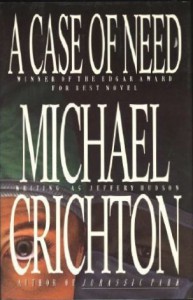
This is a real page turner and it's easy to see why it's the book that properly launched Crichton's career: it's full of detailed information about contemporary medicine but Crichton uses that detail to drive the plot, not to overwhelm the reader in minutiae (as some "techno thriller" writers do). Though this type of thriller has become a cilche now, I bet that it was rather refreshing at the time. Crichton's protagonist is a bit like the Dashiell Hammett version of a doctor. Yes, that's implausible, but Crichton makes it work well enough.
The biggest issue with the novel is how awfully dated it is in its attitude towards women: there are numerous lines that imply women are inferior to men both intellectually and morally - the worst of which, for me, is from a doctor character who believes that 90% of his female patients are imagining their conditions, which is about the most old man doctor thing to say ever. However, it's worth remembering that, given that this novel is in the first person, it would be inauthentic if the narrator wasn't a misogynist (and he's only relatively misogynist given everyone else's rampant misogyny).
If you can put aside the misogyny - or accept it as an accurate description of its time - this is an enjoyable read that I couldn't put down.
An introduction

This is a general history of Rome meant, I believe, for use in schools as a textbook. It's written that way anyway, so it's rather dry.
The strength of the book is in the early going when it provides a great deal of pre-history to the empire, pretty much all of which I was unfamiliar with. Another strength is that the authors mostly refuse to speculate, so this is likely an accurate, not one that thrives on biased ancient accounts or on inventing motives for historical actors.
But the book has two major weaknesses, even though it has been updated it. The first is that it is very much a survey, despite it's length. Everything is general and it merely touches on every era. The second issue is that, as the history approaches the rise of Byzantium, everything is dealt with rather cursorily.
Anyway, I'd never read a history of Rome before, so I'm glad I did.
If you're a writer, this is as good as it gets
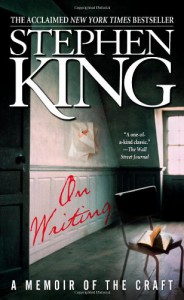
I have never read a single Steven King novel or short story - I know, I know - and I don't write fiction, but this book was recommended highly, and I figured I would give it a try given the struggles I am experiencing with my current project.
King is an engaging, entertaining writer. He is so extremely relatable, it's easy for me to imagine how his characters in his novels connect with people. The mini memoir/autobiography that opens the book is so good it makes me want to read a full autobiography (even though much would be lost on me, given how I've never read him). He does, occasionally, come across as an Old Man, but so what?
King's tips for writers are straightforward (downright obvious, at times) but many of them are essential tips (some I've come to learn on my own over the years, some I was not aware of). They are presented in a style that is never condescending and always encouraging. (Even though he doesn't know the reader, King writes as if he did.) He goes so far into his own process that he even shows us how he does it, which is invaluable for writers struggling with confidence.
Though this book is not for me (as I don't write fiction) I still found it immensely helpful, encouraging and entertaining.
You owe it to yourself to read this book if you are at all trying to write. (Or even if you just like King.)

This is an odd one: it's a story of a romance with virtually no context. Sure, we get some idea of what Europe was like for a son of a wealthy family in the early 19th century. And, in one of the later chapters, Constant describes the physical geography of an area of Poland. But, beyond that, there's only Adolphe's emotions and his perceptions of Eleanor's. I don't know that I've read anything like it.
And though I don't know that I enjoyed it - I feel like the main characters' behaviour would only ever make sense in the Europe of the 18th, 19th and early 20th centuries - but it's remarkable how insular it is while managing to make you feel for them. And I think it must have had a major impact on later "psychological" novels, and I feel like Dostoevsky must have been familiar with it.
Exactly what you'd expect
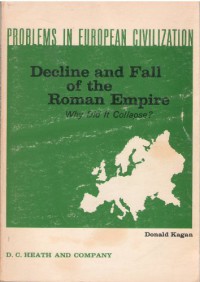
This is an old sampler of theories about the decline of the Roman Empire that I think was part of a class my father took in university. It was assembled in 1962, but the first issue with it is that many of the books and articles it draws on were published significantly earlier. And though we've learned a lot since 1962 about how to "do" history, they no doubt had learned much between 1916 and 1962. And I mention this because some of the excerpts included are laughably unsophisticated and one of them is actually a racist "explanation" of how "blood mixing" caused the downfall. (You'll be happy to note that the authors quoted in the book who were aware of that theory can barely dignify it with criticism, even in the early decades of the 20th century, so that's something...)
Anyway, I guess this might work as a reasonable survey of the most common theories that existed in the first half of the 20th century. But as a survey of history, it doesn't hold up now.
Worth the effort
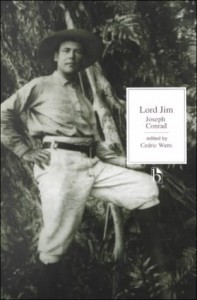
Conrad is perhaps my favourite (English language) writer from the turn of the last century. I find "The Secret Sharer" to be one of the greatest English language short stories ever written. And Nostromo is a favourite of mine. And yet it took me forever to get into this, considered by some to be among his very best work.
The biggest hangup for me was pointed out by reviews at the time: Once Conrad eventually adopts Marlowe as the narrator (something that doesn't happen immediately), we're supposed to believe Marlowe is telling this story - a story that goes on for the majority of the novel's 300 pages - to a group of people somewhere, in one continuous sitting, with barely a pause. That was apparently hard for some people to accept in 1900, but it's extremely hard to accept in 2016.
And that conceit still bugs me. And it's only Conrad's skill at handling both the early reveal about what really happened on the Patna and Jim's eventual fate that overcame what was otherwise eating at me for most of the novel.
The way Conrad and Marlowe tell the story is problematic, but it's also thought provoking. It's worth noting that Marlowe believes he is a trustworthy narrator, but some of his information - and especially all the information in the denouement - is secondhand, and I suspect this was a deliberate choice. A choice appears to have more and more significance as the novel progresses. (To wit, how much has Marlowe created Jim, and how much of the "real" Jim is in Marlowe's telling?)
Putting aside the narrative structure though, we have a compelling tale of a fallen man who tries to find redemption in a "civilizing mission" in what is now Indonesia, only to find he can never escape himself. In fact
SPOILER ALERT
There really is only one escape. And it's the power of that story that helps me get over the somewhat awkward narrative device, and Conrad's decision to essentially tell the story in three separate ways.
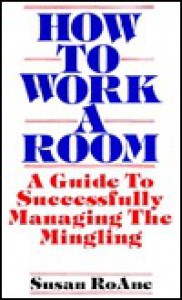
There are parts of this book that are helpful if you are shy (the author claims that most of us are shy...) or if you don't know how to go about networking. But...
Like most self-help books, it is awfully repetitive.And that's hard to take.Also, the author doesn't understand proper emphasis, despite teaching English herself. She uses quotation marks and capitalization (mid-word!!!) in place of italtics. That's nit-picky, I know. But excessive, incorrect use of quotation marks is a major pet peeve.
But the problems don't stop there. This book contains two separate chapters on online "manners" or "etiquette" and this woman a) doesn't fully understand new technology (she appears old) and b) doesn't understand that each of these technologies has its own etiquette. These two chapters read as if my parents were lecturing me how to properly use email and social media. If you don't understand something completely, don't write about it.
Then there's the chapter on manners and etiquette. This is a chapter so obviously written by a privileged, old white woman, it's hard to put into words. Anyone other than privileged old white people would probably recoil in horror reading it, as the author defends "polite society" and the etiquette and manners traditions that have been used as a form of social control by rich Europeans for centuries. There's nothing wrong with being polite. Being polite is good. But manners are not universal, they are cultural. They are not "common sense" unless the only people you know are from the same class and ethnicity as you. This chapter reeks of ignorance of the world outside the United States - hell, even the areas outside of business meetings within the United States.
Anyway, there's some useful advice in the first few chapters. And then you can stop there.
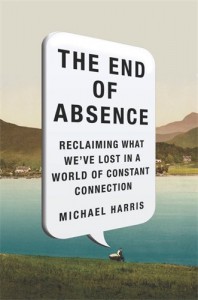
This is a thoughtful and sometimes thought-provoking examination of my generation - the last generation to remember life before the internet - and the consequences of technological change. It is entirely too personal a work for me - it reminds me a little too much of a film where the filmmaker cannot help inserting himself in front of the camera (or into the narration) - but I get that this is what sells nowadays and it's how many people connect with intellectual ideas.
Harris is, at times, a little curmudgeonly, but since I can be too, I don't fault him for it. And, on the whole, he is pretty balanced between seeing the downside (that few want to see) of constant connection and the pluses. The book is much better researched than I imagined it would be, and could easily lead me down numerous little rabbit holes if I were intent enough. I also appreciate how Harris refuses to proscribe specific solutions to us, even though he does give us a vague one. (I would also like to note that I lived without the internet in my home for years - literally - and you don't see me writing book chapters about that, but anyway...)
It's certainly an interesting read, whether you are one of those technological utopians or you are a borderline Luddite, like me.

This is a pretty great collection of selected short stories from Chekhov, plus two plays (one major, one minor) and a few letters. I am not a man who cares about an author's letters, so I won't be discussing those.
Chekhov helped set the standard for the short story - you might say he invented the 'modern' short story - and this collection gives you a good idea of how. Before Chekhov, stories were always concerned with Plot (with a capital P) - i.e. the only thing that mattered was narrative. Chekhov introduced a greater focus on character and nuance. It is hard to imagine the shorty story - particularly the American short story - or what we might call "European" cinema without him and his emphasis on character and tone over narrative. One comparison I could make is that Chekhov is to the short story tradition (and, perhaps, fiction as a whole) as Debussy and Satie are to "classical" music. (If that sounds like high praise, it's meant that way.) This collection lets us see that.
There is no way I will ever make my way through all of Chekhov's hundreds of stories but this collection gives me a sense of Chekhov as a writer.
On the other hand, only one of Chekhov's four classic plays is included (though it's my favourite), which makes this particular collection less essential.
And the letters (which are excepts from what is, I can only assume, a voluminous correspondence) do not really add to my experience of the stories, the real treasure.
But all and all, a good introduction to a man who might be considered the greatest short story author - or at least the most important - in history.
Essential not just for fans of Herzog but for people who struggle with creating art
![[(Werner Herzog - A Guide for the Perplexed: Conversations with Paul Cronin)] [Author: Paul Cronin] published on (September, 2014) - Paul Cronin](http://booklikes.com/photo/max/200/300/upload/books/7/b/7b4e57711154efdef98af89eede18072.jpg)
Herzog is probably my favourite filmmaker. It's not that I think he's "greater" or "better" than others, but that I know I'm going to see something different, whether it's his newest film, or some old short of his I managed to find. His films are always provocative, usually funny and often profound. He has made at least 4 of the greatest films I have ever seen, as well as a bunch I find virtually incomprehensible.
This book isn't exactly an interview with him. Instead, using the approach Herzog himself uses for his "documentaries," both Cronin and Herzog re-edited the interview to create a new "fake" conversation that they felt more "true." The result is an engaging, fascinating book about Herzog's life, movies and the problems of the modern age. Regardless of how much of it is outright fabrication or exaggeration, it really is a useful guide for people who are struggling with belief and confidence with their art. Regardless of what you might think of Herzog's work, he has been extremely successful, and regardless of whether or not you think he's crazy, his method opens up an extraordinary new path for anyone struggling for recognition: you can do everything yourself (with the help of some committed friends). You do not need the system, you just need determination. This, for me, is the central message here, and it's very inspiring.
Required reading

This is a fine collection of Chekhov's four most famous plays.
The Seagull is my least favourite - it's concerned with the theatre a little too much for my liking. The ending is great, though.
Uncle Vanya is the kind of thing I would have devoured in my early twenties. It's borderline existential the conflict between the old and the new (or the pretty and the ugly) is something that has always fascinated me.
Three Sisters feels to me like the most iconic of these plays - not being familiar with it I still felt like I have seen echoes of it in other works. It reminds me a little bit of The Iceman Cometh in terms of the grass is always greener / I am going to do something about it tomorrow attitude of many of the characters.
To me, The Cherry Orchard is his masterpiece, both hysterically funny and profoundly moving. I know people like this and have, myself, behaved like this at times. I see too much life reflected in it.
Well worth your time

This is an impressive and engaging summary of the lives and ideas of the major economists from Adam Smith through Joseph Schumpeter, covering both the people you would expect (Ricardo, Keynes) and some people you would not.
Heilbroner is a refreshing guide because he both has a historical sense of economics and he is not a free market nazi. Moreover, as he makes clear in the final chapter, he shares my doubts about economics as a Science.
Now, I can't speak to how thoroughly he captures all of these authors' ideas - though he does an excellent job with the brief biographies - as I have not read all of them, and the one's I did read, I read approximately a decade ago, but I must say that I think I trust his interpretations and he presents all these ideas in about as easily digestible a format as you are going to find (certainly more so than a boring textbook).
I would strongly recommend this as an introduction to economic history and theory to anyone, including people whose introduction has been one or two university level courses (which no doubt ignored the history, at least that's my experience).
Well worth reading.
Probably a genre classic
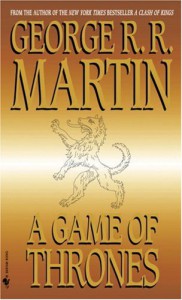
I have never liked fantasy novels and usually only enjoy fantasy movies for their cheesiness and predictability (though there are exceptions).
However, the TV show won me over due to its drastic differences from most fantasy I am familiar with. As a fan of the show, I really felt no need to read the books. But when my friend told me he was really enjoying the audio books, I thought I'd give it a listen. (Thanks Derek!)
As someone who avoids fantasy, I cannot say whether or not what Martin does here is original, but it certainly strikes me as rather radical for a genre that normally seeks to make its readers happy.
The first thing Martin does right is that he populates his stories with "real" people - by this I mean that the people are morally ambiguous: they do good and bad things, they have good and bad motives, they make mistakes, etc. So often in the genre, we have a hero who is Good (with a supposedly fatal flaw that never quite proves fatal), we have villains who are Pure Evil. We might have someone who puts on an act, but at bottom everyone is either Good or Evil. Not so in Martin's world.
The second thing he does well is world creation. The world of A Song of Ice and Fire is so dense that it rivals the universes of Star Wars and Star Trek for depth. There is so much backstory - for literally everyone, and the world at large - that it's easy to lose yourself in the massive world he has created. You can investigate so many angles (especially with the different wikis) that you can literally believe this is history, and that makes it a lot harder to criticize other aspect's of Martin's prose, just because he has built this giant universe, an overwhelming one.
Finally, the way Martin introduces his characters is unparalleled in my experience of the genre (with, perhaps the exception of one character in the Harry Potter series). And here we get to the SPOILERS!!!
SPOILER ALERT
If you haven't read the books or seen the show, I'm about to reveal some major plot points.
Think about how Martin introduces Tyrion, arguably the hero of the entire story. Tyrion is not only unhero like in his build and his behaviour, but he's actually positioned by Martin to possibly be a villain until about 2/3rds of the way through this first book. That's fantastic.
Also, Ned is positioned as The Hero for the vast majority of the book. (This is what won me over in the show. I so thought Ned was going to live.) And instead his heroism, or rather his character traits we normally associate with heroism, lead him to his death. He is, rather than a hero, a fool.
Finally, there is Littlefinger. Sure, he seems conniving. But he also seems minor and rather harmless compared to the Lannisters. This is how Martin introduces perhaps the Villain. (The villain controlling the villains, without their knowledge.)
But, though all of these things are impressive, there are still some obvious flaws to his work that keeps this book (at least) from being transcendent.
The first is Martin's obsession with description, which goes part and parcel with his world creation. There are a few moments in this very, very long novel where you're just like "Jesus Tapdancing Christ, stop listing things." Particurlarly when Sansa is at the tournament or when Bran is learning about history. It's just too much. And I feel like though it provides more of the history, couldn't this have been done more effectively?
And of course the dialogue is merely fine. It's not quotable (for me anyway), it's not life changing. It serves it's purpose, but it's hardly great dialogue to go with classics outside of fantasy.
But overall this is very impressive and it has changed how I view a genre I thought I hated. I'm glad I was able to enjoy it even while being caught up with the show.
Not worth buying but worth reading
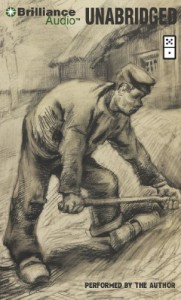
If you struggle with completing things on time, or completing things at all, this is a book for you. (When I say things, I mean creative endeavours.) However, you really only need to read The War of Art. This book is helpful to me, but it's also a crock. It's 100 pages in the hardcover form, but that's only because of the formatting. It's probably somewhere between 50-66 pages if we're being charitable. If not, it's even less. Sure, some of that formatting is to an artistic purpose - to emphasize the words - but it's also to diguise that this isn't anything more than an article hiding as a book. Frankly it should be available for free online, perhaps as a way of convincing you to buy The War of Art (which you should read and probably buy if you are a struggling writer).
I would highly recommend getting this from the library if you do indeed want to read more of Pressfield's very astute assessment of how to write. But don't buy it.
Interesting but flawed

This is a provocative page turner that raises lots of questions about where late 20th century capitalism is headed. FYI, it's also the first Ballard novel I've read, but I have seen both of the films that were adapted from his books. I found it entertaining and mostly provocative, but I did have a few issues.
For one thing, Sinclair is not that likeable to begin with. I hope that was a deliberate choice but there is a part of me that thinks maybe I just don't like Ballard (if Sinclair is meant to be him). Sinclair reminds me of an old Britain that I don't think many of us miss: classist, sexist, racist, and utterly unaware of that, to the point where he believes he's the very opposite - the most civilized man in the room. But, whether or not it was deliberate, it does make him a more interesting character (if not entirely believable given what later happens).
A bigger issue with the novel is Ballard's view of psychiatry and psychology (he seems to confuse the two) - he appears to a) not really know what psychiatrists actually do in real life (or perhaps he's willing to take a huge artistic license) and b) he seems to think whatever it is they do is as dangerous as fascism, unfettered capitalism, drug abuse and other such things. That's really odd to me and it's a hard hook to hang a plot on, in my opinion. It works a lot better than it should, to his credit, but it's still something that eats at you as you read the novel.
Otherwise, I mostly enjoyed the story, and there was enough going on to keep me interested and guessing.
Excellent

Scorsese's version of this book is, in my opinion, one of his very best films and on the short list of films I would recommend to anyone wanting to understand good direction. This despite Michelle Pfeiffer's supposedly miscast as the female lead.
Perhaps my love for the film version is what made me initially kind of underwhelmed by this novel. It took me a while to really appreciate the claustrophobia created by Wharton's portrayal of social mores of the era. Perhaps my identification of the actors with these roles is what made me take so long to view these characters as independent of the film.
In any case, this is a devastating story of unrequited love within the hypocritical and overly proper world of late 19th century New York.
Whereas Henry James' portrayals of these types of people always fails to make me concerned at all with their fates, Wharton captures these characters as real people, people I care about, despite their privelege and luxury. Having read a few of James' novels in between seeing this film and reading this book, I am awed by the contrast between Wharton's and James' work. At least for me, her work is far deeper, far more moving, far more relatable. I can't tell you specifically what it is that makes me greatly prefer Wharton, but whatever it is, it's fully on display here. (Perhaps its Wharton's generation in general.)
A classic.





 1
1

 1
1